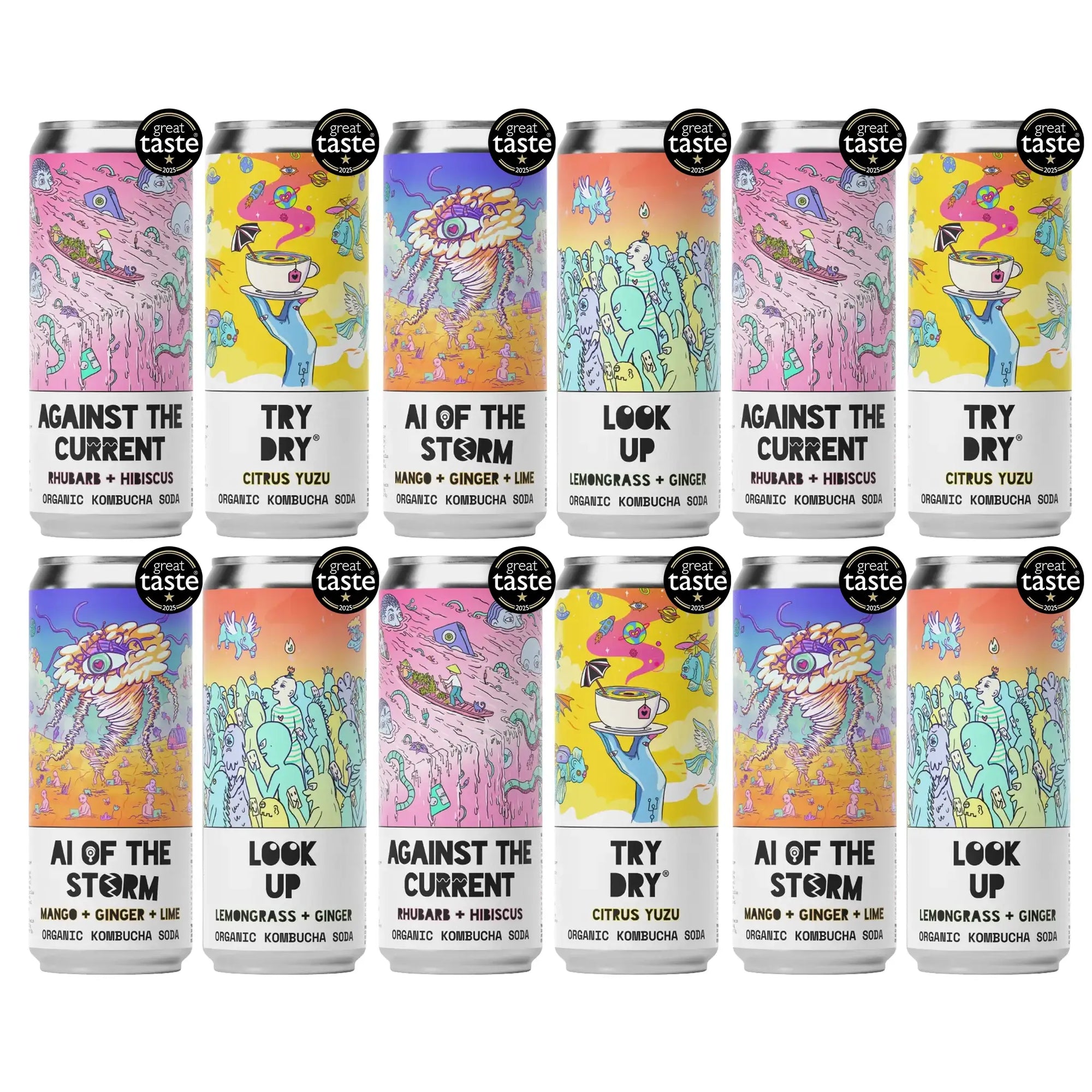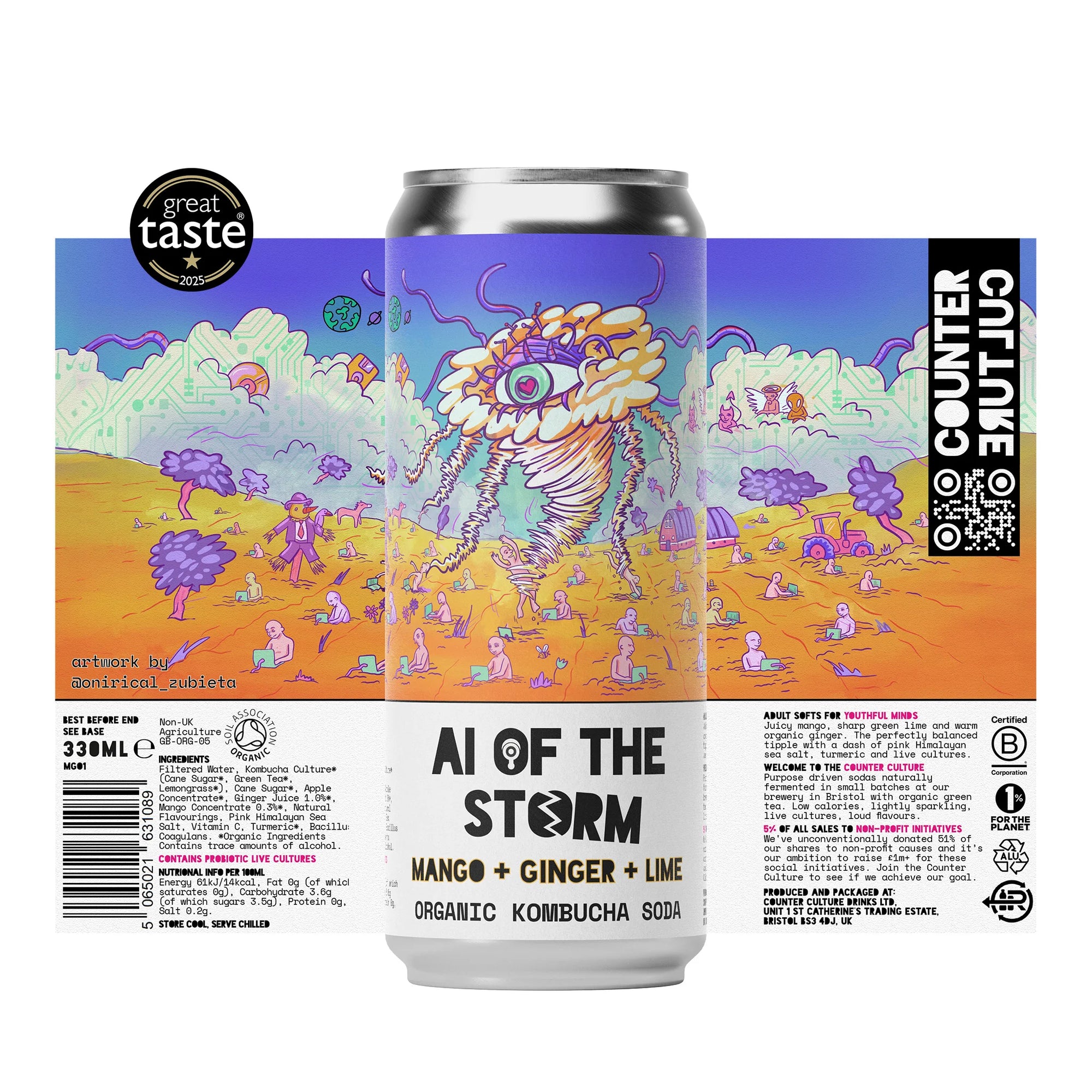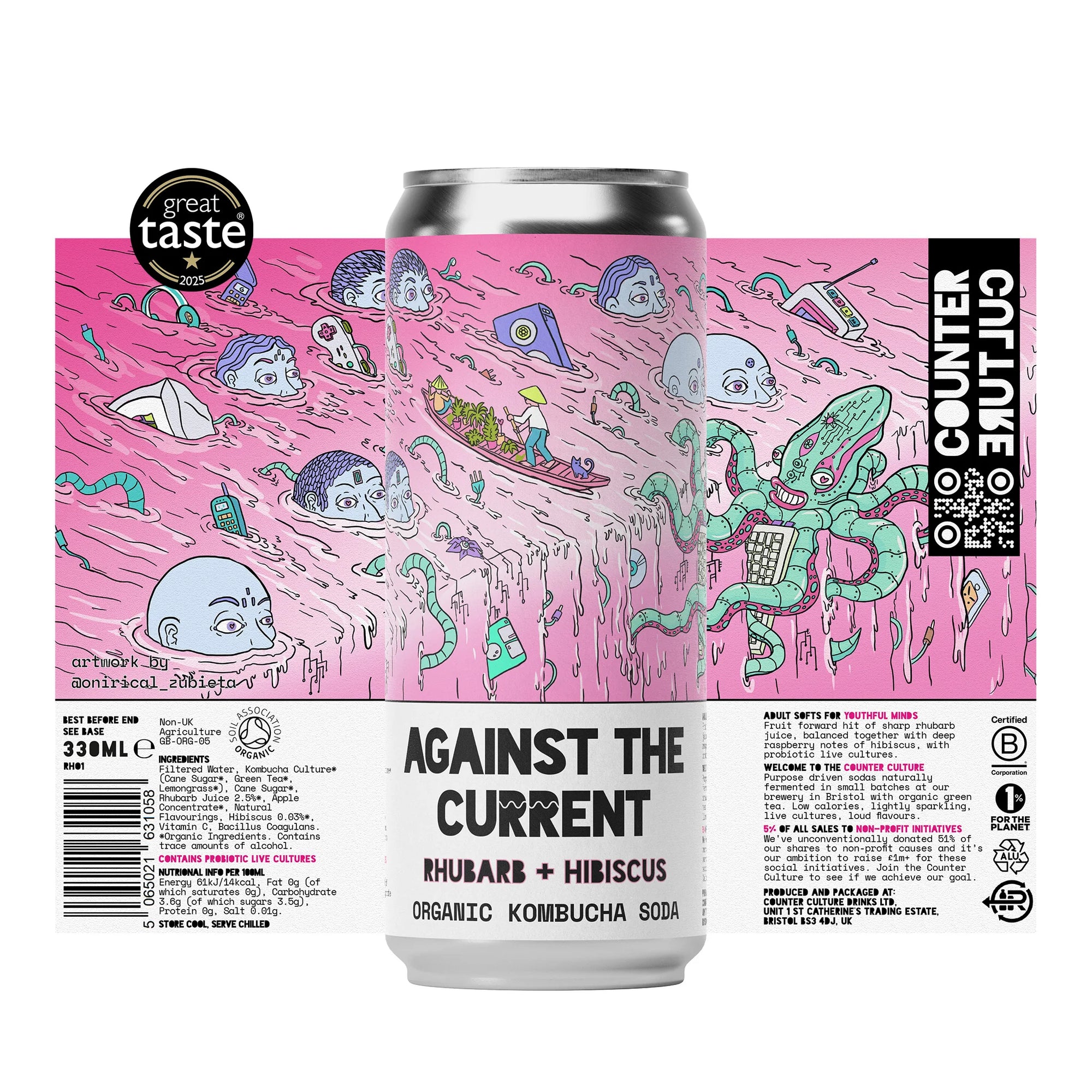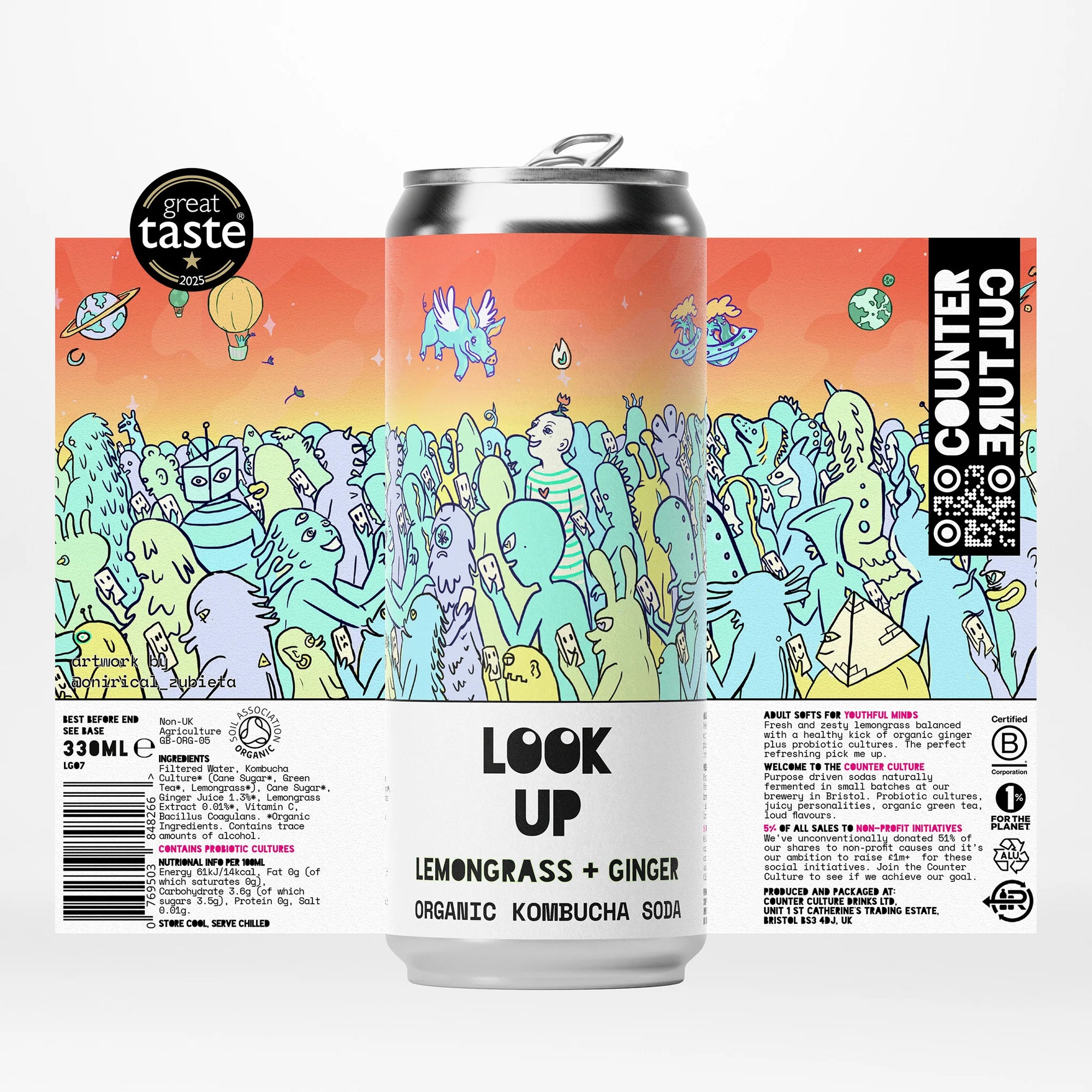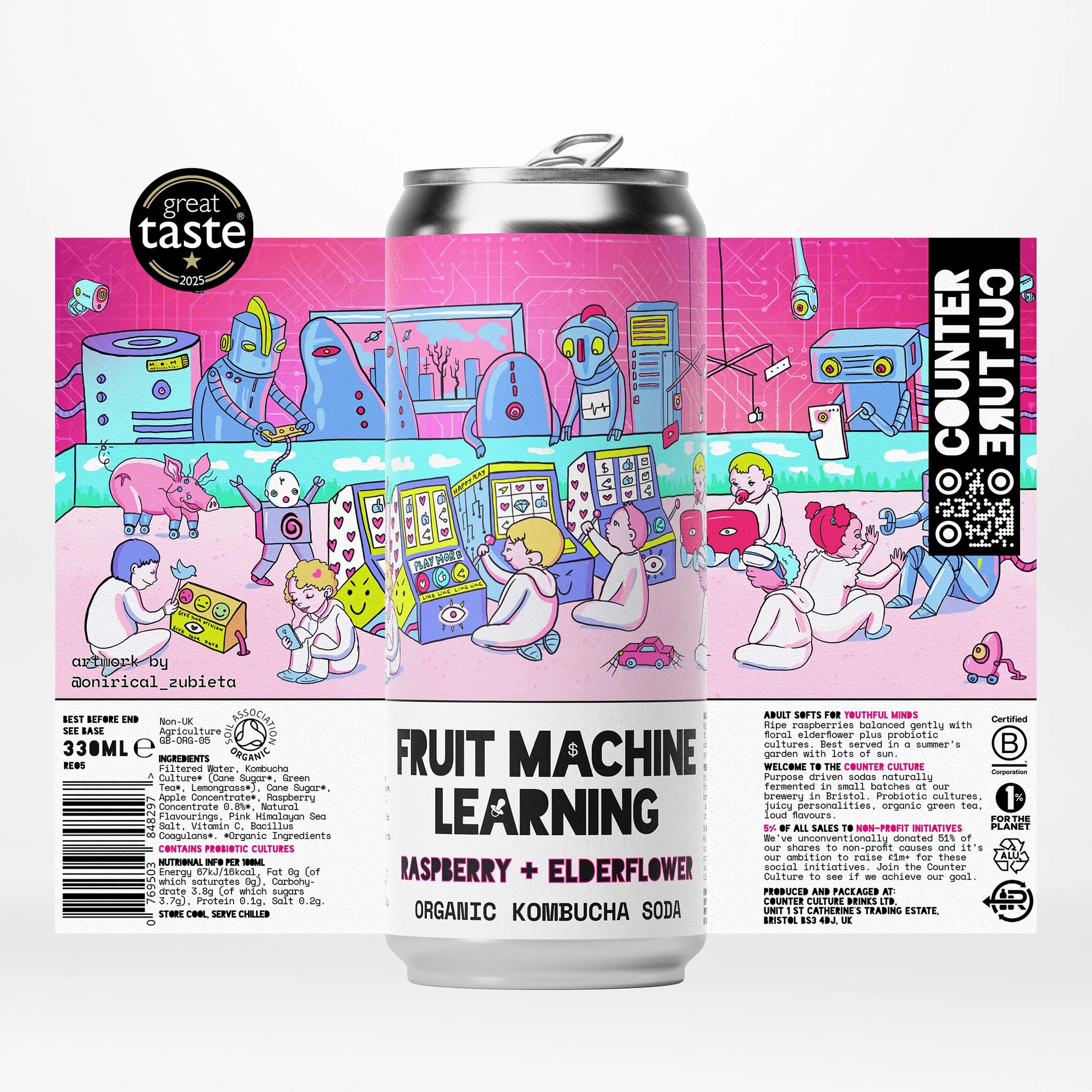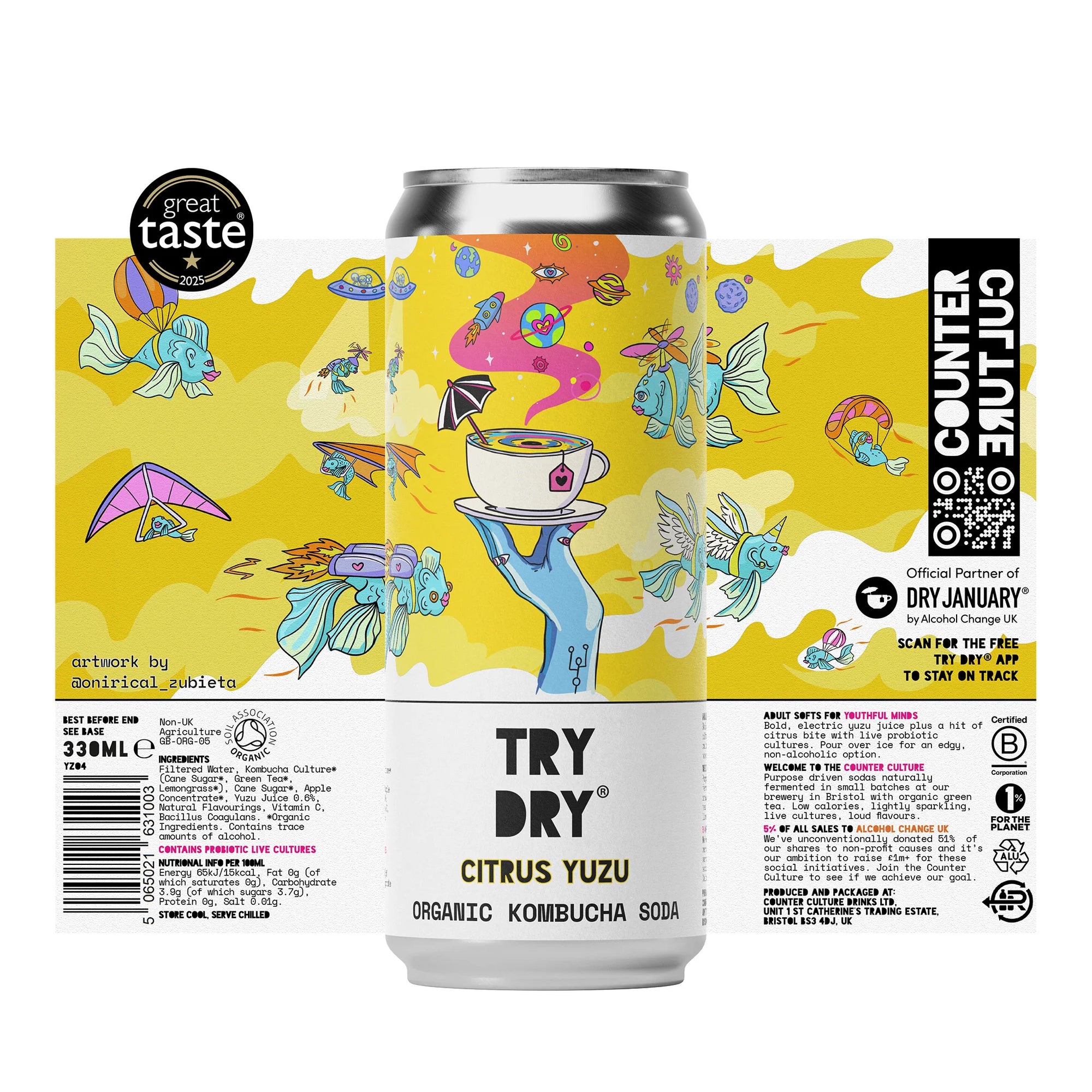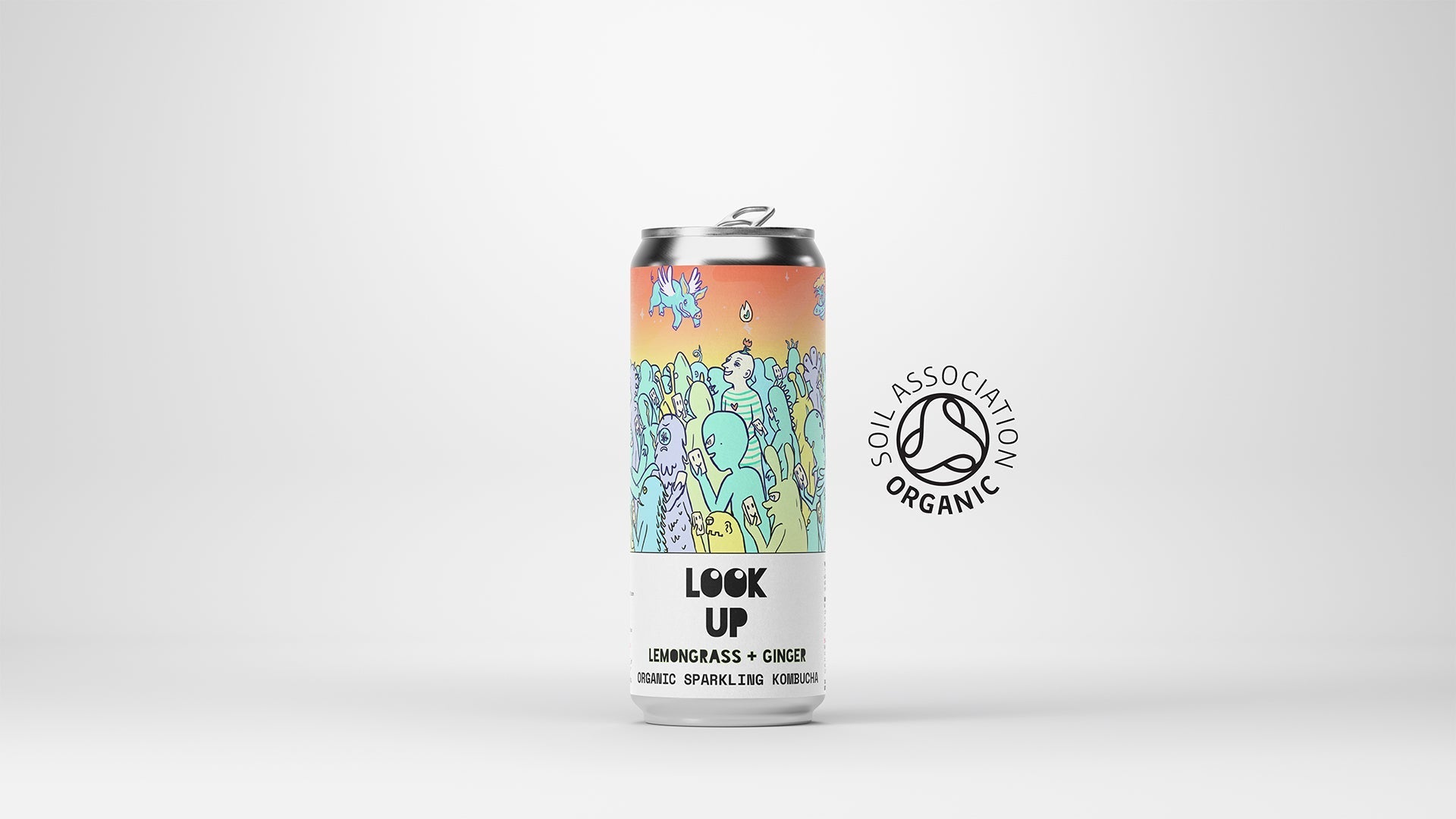
Organic vs Non-Organic: Which is Better?
Organic vs Non-Organic: Which is Better?
Here at Counter Culture all of our kombucha drinks contain organic ingredients. Lately, there’s been a big shift towards organic foods. We currently produce one certified organic drink and will shortly be releasing our second. People are saying they’re healthier and more nutritious than conventional food consumption and non-organic options. But is that really true? Let’s break it down. 🌱
Understanding Organic and Non-Organic Foods
First things first, what do we mean by organic and non-organic?
Definition of Organic Food
Organic foods skip the synthetic chemicals like pesticides and fertilizers. Organic farmers use natural methods to grow their crops and raise their livestock without antibiotics or growth hormones. Simple, right?
Definition of Non-Organic Food
Non-organic foods, on the other hand, rely on synthetic chemicals to boost growth, prevent disease, and control pests. They use pesticides, herbicides, and fertilizers. Non-organic livestock often get antibiotics and growth hormones.
Nutritional Differences Between Organic Food and Non-Organic Food
One of the big claims for organic foods is that they’re more nutritious. While some studies suggest organic foods have more nutrients like vitamin C and antioxidants, the differences can sometimes be small and vary in different foods.
Antioxidant Levels in Organic vs Non-Organic
Antioxidants are like your body’s superheroes, battling free radicals and reducing chronic disease risks. Some studies hint that when you eat organic food, you might pack more of these powerful nutrients. But don’t jump to conclusions just yet—things like crop variety and growing conditions also play a big role. More research is key to getting the full picture.
Pesticide Residues and Chemicals in Organic and Non-Organic Foods
Pesticides and chemicals in food production have us all concerned about potential health effects. Organic advocates say choosing organic reduces exposure to these substances, and eating organic food can lead to higher levels of antioxidant compounds and lower levels of toxic metals and pesticides.
Pesticide Usage in Organic Farming
Organic farmers use natural methods like crop rotation, companion planting, and beneficial insects to control pests. These methods aim to minimize pesticide use and reduce pesticide residue in organic foods.
Chemicals and Additives in Non-Organic Foods
Non-organic foods, including fruits and vegetables, may contain pesticide residue and other chemicals used in conventional farming. There’s worry that these synthetic chemicals could increase risks of certain cancers and neurological disorders.
Even though pesticide use in non-organic farming is regulated for safety, some people prefer to avoid these substances altogether by opting for organic foods.
Does Organic food taste better than Non-Organic food?
Does this “cleaner” farming method translate to better taste? Some say yes, while others aren’t so sure. What we do know is that organic farming prioritizes soil health and ecosystem balance, which can lead to richer flavours.
Case Study: Organic Tomatoes
Let's take a closer look at tomatoes. Organic tomatoes are often cited as an example of superior taste. Studies have shown that organic tomatoes contain higher levels of certain compounds, such as phenolics, which can enhance flavour. Many people swear by the taste of organic tomatoes, claiming they are sweeter and more robust.
The Role of Freshness
Freshness is a key factor in the taste debate. Organic produce is often sold locally, meaning they spend less time in transit and on supermarket shelves. Fresher produce is likely to taste better, whether it's organic or not. The shorter time between harvest and consumption can make a big difference.
Impact on the Environment: Organic vs Non-Organic
Beyond personal health, our food choices impact the environment too.
Organic Farming and the Environment
Organic food production often gets a shout-out for being more eco-friendly. Organic farmers focus on soil health, biodiversity, and sustainability using natural fertilizers and crop rotation.
By skipping synthetic chemicals, organic farming protects soil quality, reduces water pollution, and preserves ecosystems. Plus, organic farmers support biodiversity and pollinators like bees and butterflies by providing natural habitats.
Non-Organic Farming and its Environmental Impact
Conventional farming often relies on synthetic chemicals, which can harm the environment. Pesticides in non-organic farming can contaminate water, disrupt ecosystems, and harm beneficial insects and wildlife.
Non-organic practices like monocropping and intensive livestock farming can lead to soil degradation, deforestation, and greenhouse gas emissions. These impacts raise concerns about the sustainability of conventional farming.
Cost Analysis: Organic vs Non-Organic Foods
Cost is another factor when choosing between organic products and non-organic foods.
Pricing of Organic Foods
Organic foods usually come with a higher price tag. This is due to organic certification costs, higher labor needs, and lower crop yields.
Organic farming methods, like manual weed control and organic pest management, often need more labor, driving up production costs. Also, organic crops might have lower yields without synthetic fertilizers and pesticides, adding to the price.
Why Non-Organic Foods Are Cheaper
Non-organic foods usually cost less thanks to economies of scale and higher crop yields from conventional farming. Sure, the price difference can be a dealbreaker for some, but let's think bigger.
Wrapping it up - what we think
When it comes to organic vs. non-organic foods, both have their own pros and cons. Organic foods are grown without synthetic chemicals and might have slightly higher levels of some nutrients, but the health benefits are minimal. The impact of organic farming on antioxidants and long-term human health? Still up for debate.
Choosing an organic diet will cut down on pesticide exposure and support sustainable farming. Organic farming boosts soil health, biodiversity, and environmental conservation—big wins for our planet’s future.
Personally we love to eat organic foods and buy organic as much as we can. We do so as it's way better for the planet...and it tastes better!
